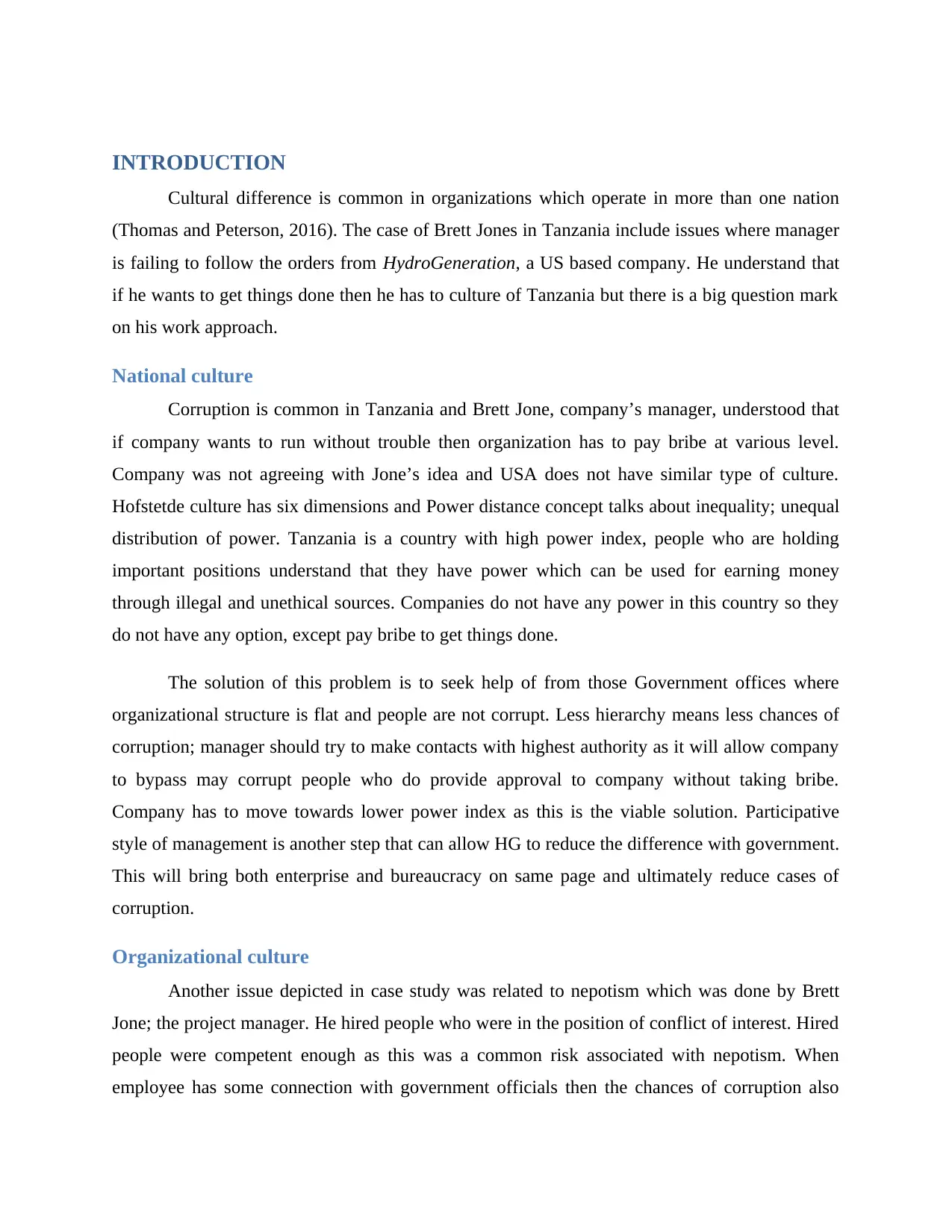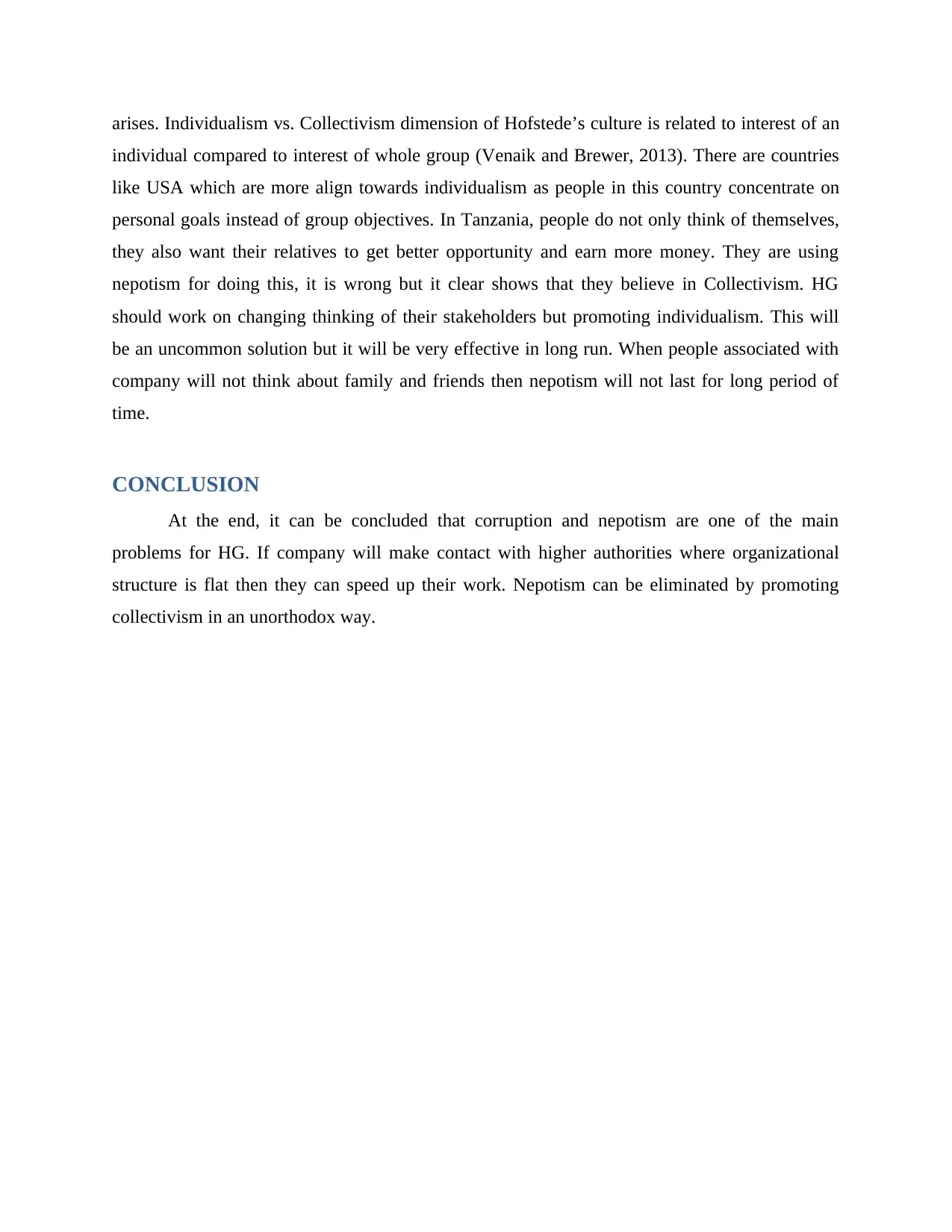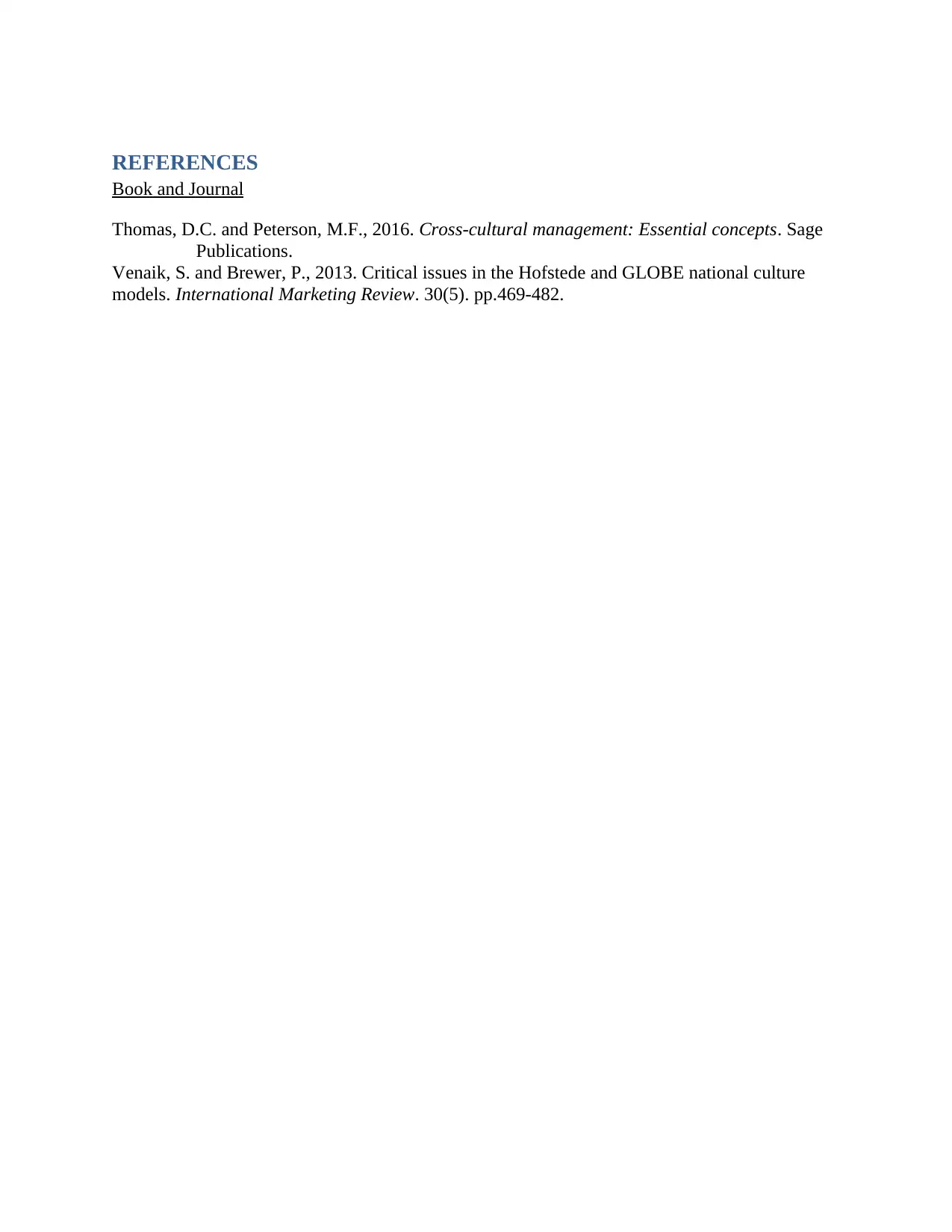Podcast Script: Cross-Culture Management Challenges and Solutions
VerifiedAdded on 2023/01/11
|5
|672
|53
Report
AI Summary
This report provides a podcast script analyzing cross-culture management challenges, particularly in the context of a US-based company operating in Tanzania. The script addresses issues arising from differing national and organizational cultures, focusing on corruption and nepotism. It examines the impact of Hofstede's cultural dimensions, such as power distance and individualism vs. collectivism, on business practices. The script suggests strategies to mitigate these challenges, including seeking assistance from less corrupt government offices, promoting participative management styles, and encouraging individualism to combat nepotism. The analysis highlights the importance of understanding cultural nuances and adapting management approaches to ensure ethical and effective international business operations. The script concludes with a summary of the key issues and proposed solutions, referencing relevant academic sources.
1 out of 5











![[object Object]](/_next/static/media/star-bottom.7253800d.svg)